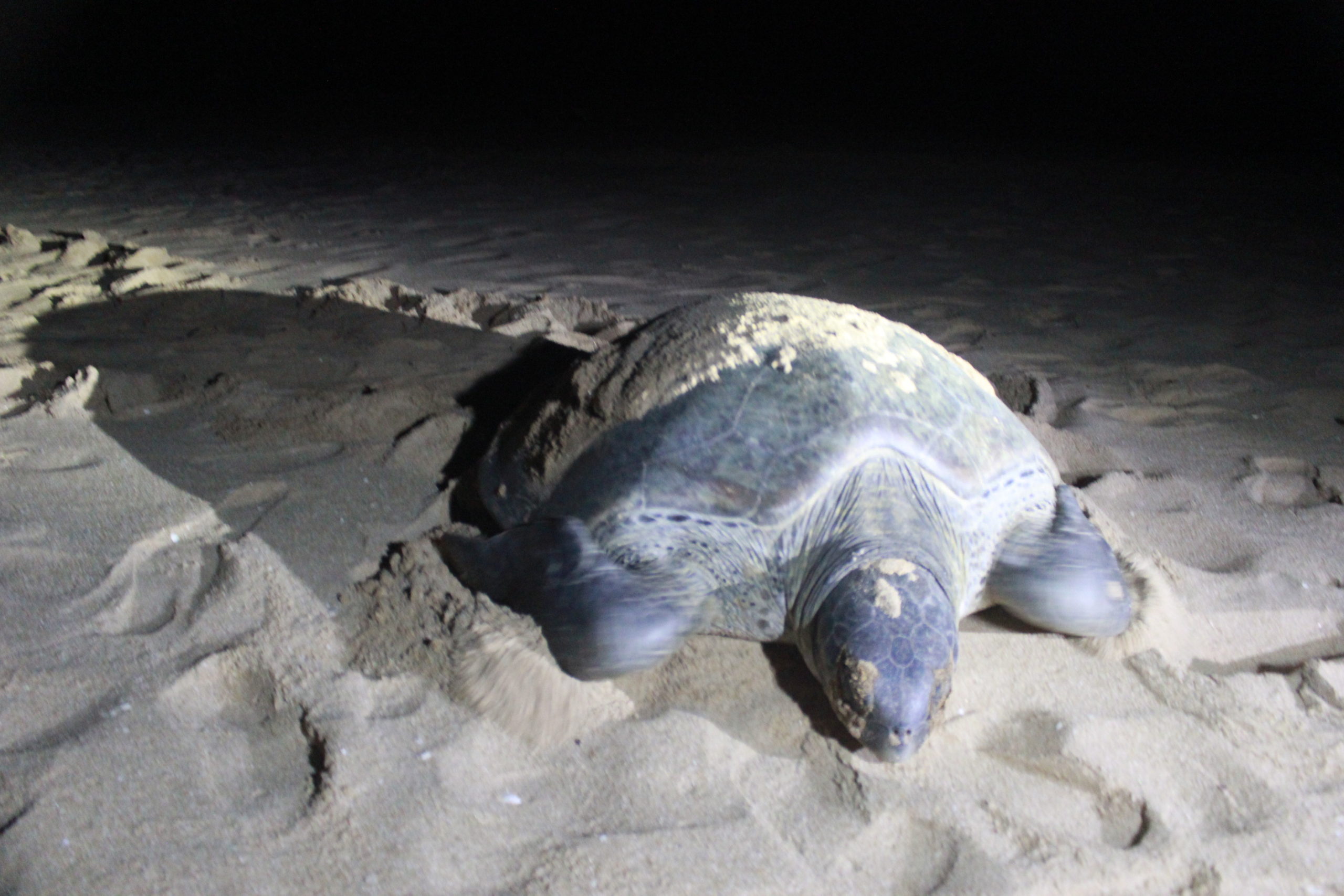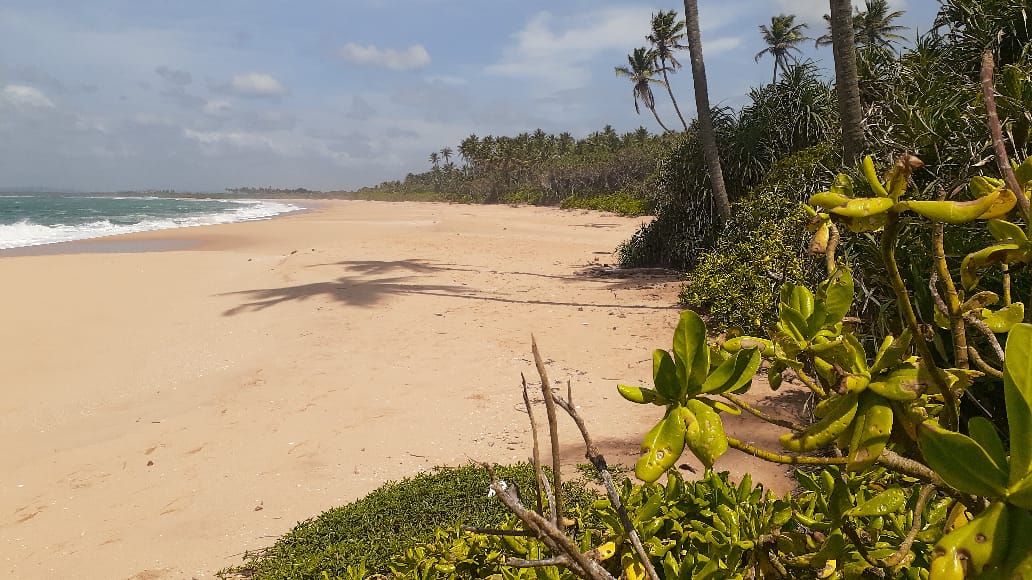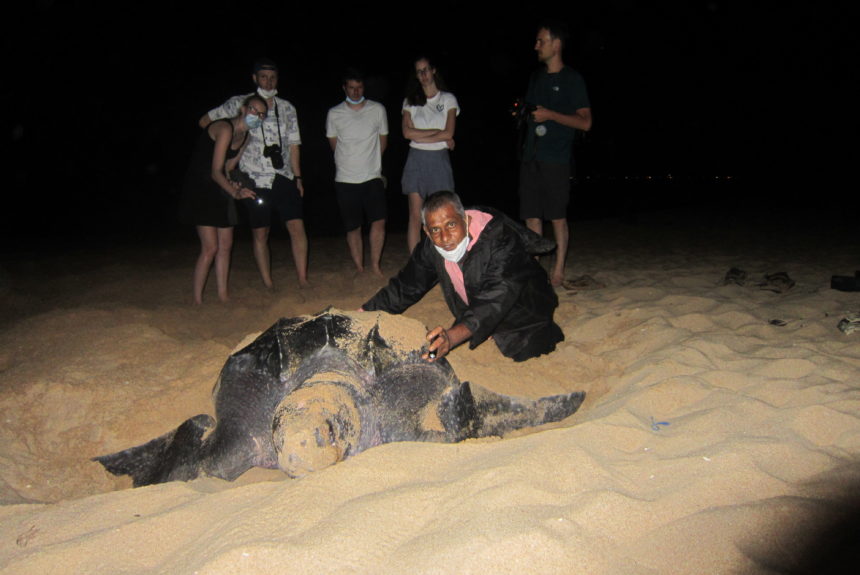Meet Saman from Rekawa Turtle Watch, Sri Lanka
Saman grew up in the local fishing community. For over 25 years he has worked to protect the marine turtles of Rekawa Beach in Sri Lanka.
He first joined Rekawa Turtle Watch in 1996 as a nest protector, later training to become a guide.
Today, Saman runs the ‘Turtle Night Watch’ programme which allows visitors to the island to come to the education centre for a briefing on the turtles before joining a guided walk on the beach – this involves walking (in silence) along the beach with special red light torches, to minimise disturbance to the turtles. Turtles go into a trance like state when they start nesting and it is possible for visitors to observe this during the visit.
The red light torches do not cause disturbance to the nesting turtles or hatchlngs in the same way as white or blue/green lights, however they should still be used carefully as any artificial light can be detrimental. The guides are there to ensure that disturbance to the turtles is kept to an absolute minimum.
Saman also organises the nest protection programme which employs 20 people from the local fishing community. Many of these used to be turtle-egg poachers. The protectors are paid $6 US per six hour shift and their job is to monitor the turtles and the nests. This involves keeping them safe from poachers, as well as preventing dogs and lizards excavating the nests. Since the nest protectors have been on the beach nearly 100% of nests have been protected.
Some of the nest protectors have also received guide training thanks to the Sri Lanka Tourist Board and Sri Lanka Hotel School.
Unfortunately due to the Covid pandemic and the subsequent economic crisis which has led to political turmoil and instability, visitor numbers to Sri Lanka have been depleted in the last 3 years. This has resulted in emergency funding being needed to keep the project running. We are pleased that we were able to support the programme last year and hope we can provide further relief with the support of the Conde Nast Luxury Travel Fair thsi year.
We sincerely hope that visitors will return to the island and the Night Watch programme can take off again.
Sri Lanka is a fantastic year-round destination. The peak season for turtle hatching is from February to July – this coincides with the optimum time for visiting the beaches of the south and west or for wildlife watching in Sri Lanka’s national parks – generally considered best during the dry months of December to April. Please do get in touch if you would like to plan a trip.
Name : M.M. Saman
Age: 58 years
Job title: Tour Guide and project coordinator for the Rekawa Turtle Watch programme
What does your job involve? : Guiding the tourists for our ‘Turtle Night Watch’ programme. I am also in charge of coordinating the in-situ sea turtle nest protection programme.
How long have you done this job? : Since 1996 I’ve worked as a Research Officer for the turtle nest protection programme at Rekawa. I’ve worked as a Tour Guide since 2012. I have over 26 years of experience on sea turtle conservation work here at Rekawa.
What do you like about your work? : For me the most important thing is to conserve sea turtle nests naturally on the beach.
What are the challenges ?: Working with fisheries and community members.




